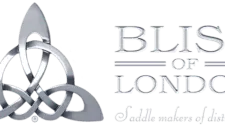Is it possible for horse people to get along?
Sadly we are often thought of as know-it-alls who can’t get along. Even amongst a group of horse people united by a discipline or philosophy, there will be disagreement over something and, chances are that it will be met with conflict rather than curiosity.
This is, of course, hardly surprising. If your way of doing things has given you great results, it is only natural that you want to share your way with others…
The trouble is that they might be trying to do the same, with the same good intentions, but with a different way. And so instead of listening to them and reconsidering your own views and practices, you become defensive.
And the more you have invested time and money into an approach, the more likely it is that you will staunchly defend it, possibly even suppressing doubts that try to surface or ignoring inconsistencies.
The one thing you think would unite crazy horse people is the love of the horse. But no. There are too many different ways of ‘loving’ horses to reach consensus here either (think of rugging, feeding, stabling). In fact, it is because we want what is best for horses that we find ourselves in all states ranging from externalised conflict to internalised frustration.
We want our horses to be happy and healthy and we want our sport to be respected. But do we really want a judge to suggest that they are not?
We complain that the same judge who rewarded another rider for unethical riding dared to suggest we are too unbalanced/uncoordinated/old/overweight etc., to ride our horse, that our horse is too old/skinny/unhappy/unsound etc., to be ridden or any other horrible comment you would be mortified to have directed at you.
So – for the sake of horses – how on earth are all the people supposed to get along?
Consultation
Have you consulted everyone? The more views you can add, the better your picture will be. Farriers, veterinarians, nutritionists, trainers, ecologists, locals, activists, can all contribute to the same discussion and provide different perspectives. Try to delay coming to a conclusion, making a decision or acting on your own opinion until you have considered all the possible perspectives.
Have you involved the very group you expect will have a different view to you? They could hold the missing piece of the puzzle, or you might be surprised to find out they weren’t what you expected. It’s not so much about seeking an answer from them, but how their perspective or knowledge informs your understanding of the issue at hand.
Avoid polarising a debate into right versus wrong. Sometimes, our fear of being wrong is the very thing that stops us from learning, being better and doing better.
Collaboration
Right and wrong does not have to be an either/or binary. Just because your opinion differs from someone else’s does not mean they are wrong and you are right (or vice versa). You may both be wrong or both be right.
Be aware that the human urge to be right is fundamental to feeling safe and OK in the world. Feeling wrong can be deeply uncomfortable for us. No one wants to think that they have done or have been doing the wrong thing by their horse. However, trying to remove that discomfort by immediately defending or justifying our actions, can lead us to cling to unhelpful behaviours and beliefs. Give yourself and others permission to be wrong and to change. It is OK for you to be wrong because these are just pieces of a much larger puzzle.
Appreciate that most (if not all things) are dynamic. The situation over which we have opinions changes, as does our understanding, so we SHOULD change our opinions, practices and behaviours over time. We are – as reality TV never fails to remind us – on a journey.
Compassion
When you find someone giving you advice that you resist, ask yourself if your resistance comes from how the advice makes you feel. It may make you feel uncomfortable, unheard, misunderstood, shameful and all of those horrible things. That doesn’t necessarily reflect what they think. Do yourself a favour and make it about your horse – not you.
Assuming the best of intentions is the best way to go. And it works even better both ways. Assume the best intentions of the person disagreeing with you. Assume the best intentions of the person sharing their opinion.
Opinions are always best received when they are solicited, but when it comes to serious issues like horse welfare, that is not always possible. Finding common ground is one way to reduce outright conflict. Make it about the horse, not the person.
Nonetheless, there are times when we need to get together and decide what is right and wrong. Cruelty and welfare are such instances, although we know that even horse welfare is open to interpretation.
Consultation, collaboration and compassion are often easier explained than practiced and whilst I am under no illusion that we can all get along, I’m sure we can all get along better.
It is important to be curious about our fellow horse people too. Just be sure that in your efforts to get all the different views on horses or a better understanding of other humans, you provide opportunities for them to reveal their own opinions and contribute equally to the discussion.
SOURCE: HORSES AND PEOPLE




